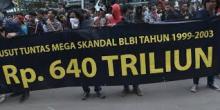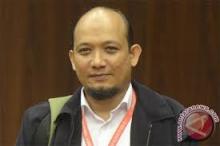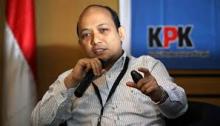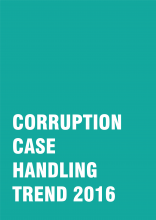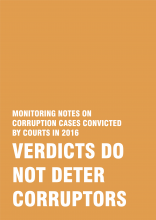After ten years of uncertainty, the Corruption Eradication Commission (KPK) finally named Syafruddin A. Tumenggung, the former head of the Indonesian Bank Restructuring Agency (IBRA) as a suspect in the alleged Bank Indonesia Liquidity Assistance Fund (BLBI) corruption case on Tuesday (25/4).
Corruption can occur anywhere, even in the most basic of the public service sectors, namely health. Based on the study of the Indonesia Corruption Watch (2017), between 2010 and 2015, there were at least 219 corruption cases in the health sector involving 519 perpetrators with Rp 890.1 billion of state losses and Rp 1.6 billion.
The Corruption Eradication Commission (KPK) is once again subjected to terror attack, with the senior investigator Novel Baswedan as the current victim. Early on Tuesday morning, 11 April 2017, Novel Baswedan was thrown with acid by unknown persons when walking home from dawn prayers. This incident is a serious threat, considering this is the fifth time Novel experienced attacks.
As predicted earlier, the legal process of the bribery case in the procurement of satellite monitoring tools at the Marine Security Agency (Bakamla) is split into two different legal processes. This case is expected to be a momentum to revise the rules and procedures of corruption cases involving members of the Indonesian military (TNI).
The Corruption Eradication Commission (KPK) has named the Director of PT PAL Indonesia (Persero) M Firmansyah Arifin as the main suspect in the case of alleged bribery related to the procurement of the Strategic Sealift Vessel (SSV) for the Philippine government. The determination of the status as a suspect is a follow up of KPK’s arrest operation on Thursday (30/03/2017). In addition to Firmansyah, the Commission also detained Arif Cahaya, General Manager of the Treasury of PT PAL Indonesia and Agus Nugroho, employee of Ashanti Sales Inc. Ashanti Sales Inc.
On 21 March 2017, the well-known KPK investigator, Novel Baswedan, was sent a second warning letter (SP2) by the leadership of the Commission. There was no clear reason for the warning letter. However, after the letter became publicly known, on 27 March 2017, the warning letter to Novel Baswedan was retracted. The KPK leadership, through Agus Rahardjo, simply stated that KPK investigators were expected to focus on the handling of important cases.
After the arrest of Constitutional Judge, Patrialis Akbar, by the Corruption Eradication Commission in January 2017, the Constitutional Court is in need of a constitutional judge to assume the position vacated by Patrialis. A new judge is immediately required, as it is expected that cases involving disputes related to regional elections (Pilkada) will appear in due course.
The hearings in the case of alleged corruption of the e-KTP are now entering the stage of evidence and examination of witnesses. Various interesting information have been revealed, such as the former secretary general of the Ministry of Home Affairs who admitted receiving a sum of money, also the shocking testimony of Miryam Haryani who revoked the dossier. On the other hand, the Corruption Eradication Commission has named one of the key figures from the private sector, Andi Narogong, as a new suspect.


